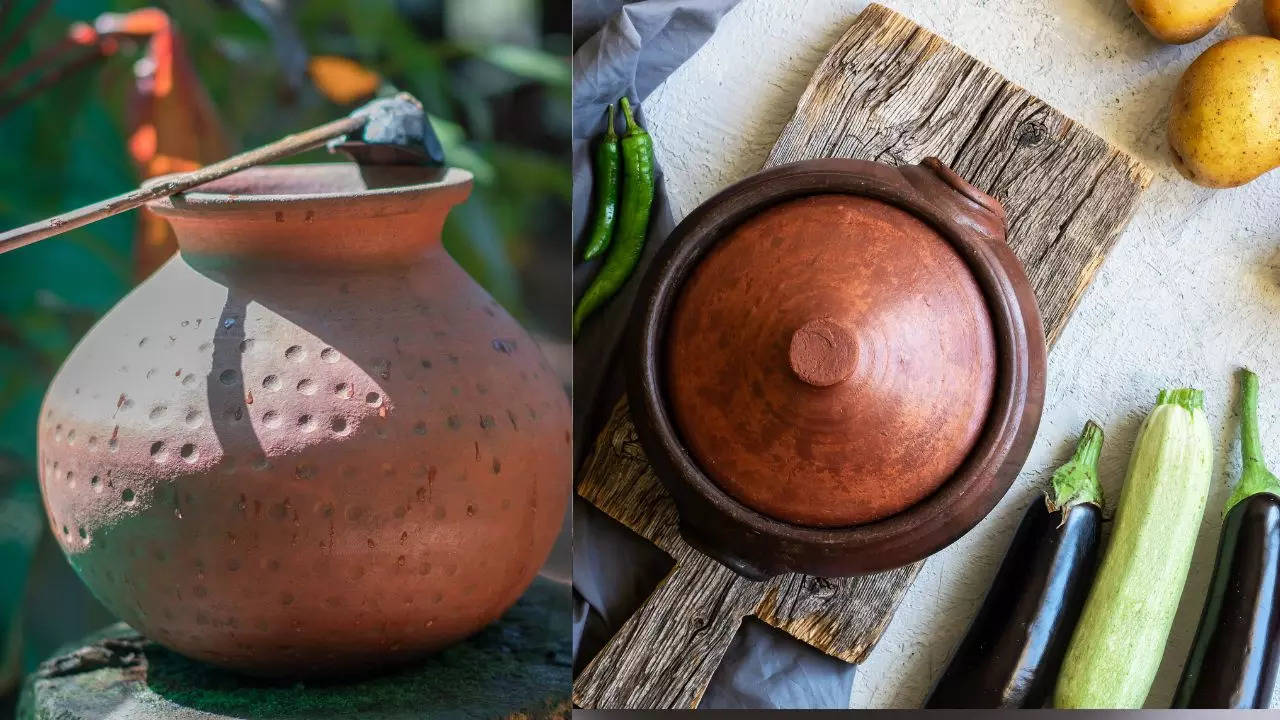
In its guidelines, NIN said that the earthen pots are the safest cookware which is eco-friendly, requires less oil for food preparation, and preserves nutrition of food. NIN has also issued guidelines for using metal, steel, non-stick pans and granite stones.
Metal: Storing acidic foods like chutneys, and sambar in aluminum, iron, unlined brass or copper vessels unsafe
Stainless steel: Generally considered safe, doesn’t leach
Non-stick pans: Risk if heat is more than 170°C. Discard if the coating is worn out or damaged
Granite stone: Considered safe unless it contains Teflon coating. If so, medium-high temperature advisableAs per the diatery guidelines, Indians are now advised to limit their daily sugar intake to 20-25 grams, equivalent to about a teaspoon, as this sugar is derived from natural carbohydrates. Additionally, the guidelines discourage the use of protein supplements and advocate for a reduction in oil consumption. Furthermore, the updated recommendations endorse the use of air-frying and cookware coated with granite.The NIN has also introduced guidelines for interpreting packaged food labels for the first time.
Dr. Rajiv Bahl, the director-general of the Indian Council of Medical Research (ICMR), unveiled the revised guidelines on Wednesday.
A notable suggestion from the updated guidelines is to decrease reliance on cooking oil and obtain essential fatty acids from sources like nuts, oilseeds, and seafood. Furthermore, advice on managing consumption of ultra-processed foods has been provided.
The revised dietary guidelines emphasize the avoidance of protein supplements due to the disparity between their benefits and risks. Protein powders, derived from ingredients such as eggs, dairy milk, soybeans, peas, and rice, are cautioned against for regular consumption. Dr. Hemalatha R, the chairperson of the committee responsible for formulating the guidelines, highlighted concerns about protein powders containing added sugars, non-caloric sweeteners, and artificial additives, which could potentially lead to adverse health effects. The NIN recommends against excessive protein intake, as it may elevate the risk of non-communicable diseases.
Research findings suggest that while adding protein to the diet can marginally enhance muscle strength and size during long-term resistance exercise training among healthy adults, consuming protein above 1.6 grams per kilogram of body weight per day does not yield additional benefits from such training.
Dr. Hemalatha R underscored the critical importance of these guidelines, stating, “A significant proportion of children suffer from impaired nutritional status, alongside an increasing prevalence of overweight and obesity. This dual burden of malnutrition and obesity within the same communities and households underscores the urgency of adopting healthier dietary practices.” Estimates indicate that 56.4% of India’s total disease burden is attributable to unhealthy diets.
The revised dietary guidelines issued by the National Institute of Nutrition aim to provide evidence-based recommendations to promote healthier dietary habits among Indians and mitigate the growing burden of diet-related diseases in the country.

















































